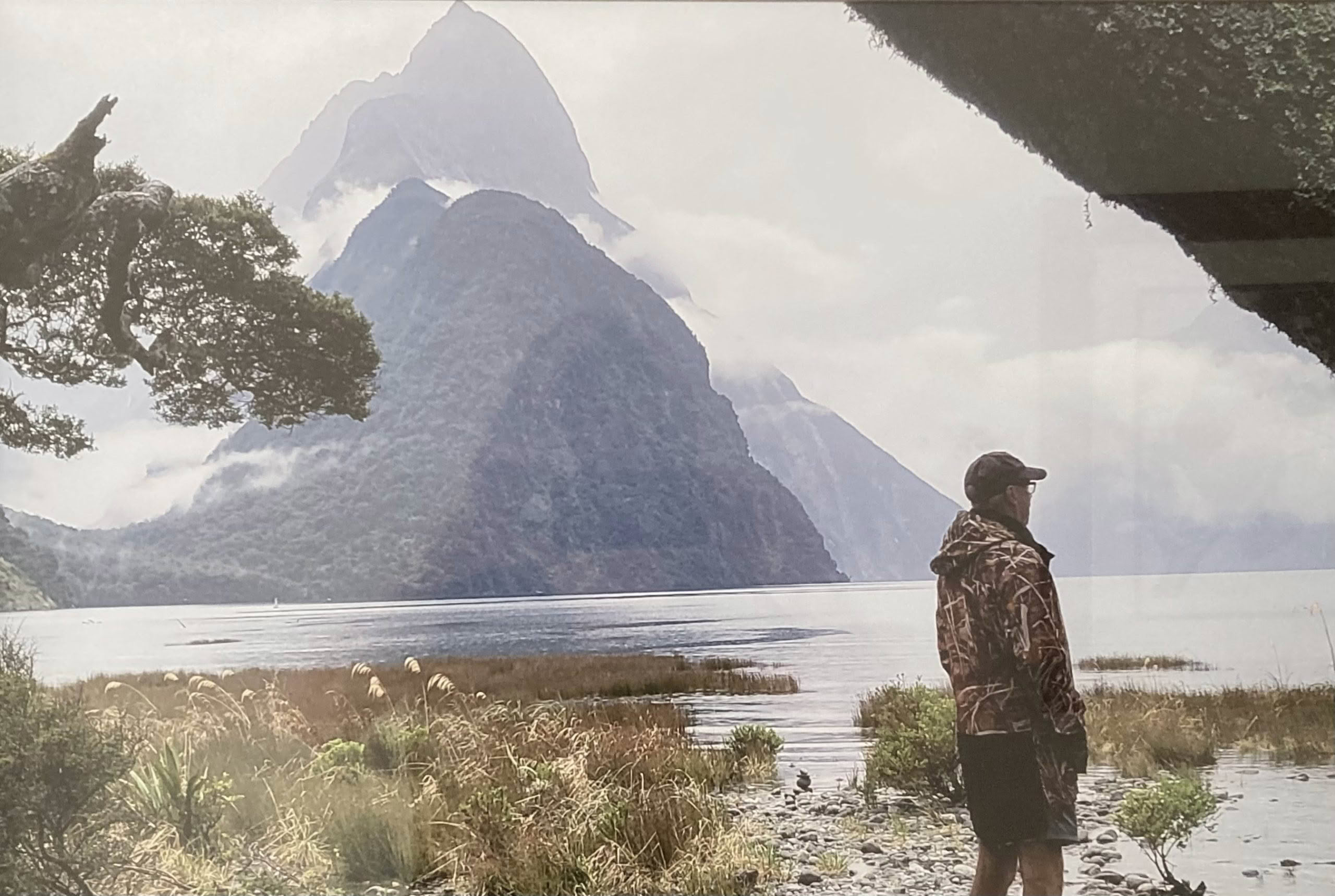It started with a trip. Paul and Mel were away on holiday, a trip to the South Island, and Paul banged his head.
And then the headaches started. They came home to Manawatu, and Mel got Paul to a doctor. Her normally dry-witted, busy, funny husband was disengaged, and just wanted to stay in bed.
She took him to a doctor, several doctors, was told he had delayed concussion, tried without success to get an MRI, fought to get him to a concussion specialist who said it wasn’t concussion… and eventually managed to get an MRI and it found glioblastoma. This is a fast-growing and aggressive brain tumour, which invades nearby brain tissue — in Paul’s case, it was in the front left lobe.
It had to be removed, so on March 29, 2022, Paul was transported from Palmerston North hospital to Wellington by ambulance. The operation was judged successful. It was followed up by 6 weeks of radiation and 6 months of chemotherapy, with the treatments finishing just before Christmas 2022.
“Then… they said it hadn’t worked.” Mel knew chemo and radiation can reduce this type of tumour, but they can’t get rid of the root cells. “It just keeps growing back.”
Enter Avastin. This is medication used to treat a number of cancers by affecting the growth of new blood vessels, and it’s not free in the New Zealand pharmacology. It cost $20,000 to begin with. The initial results were positive; after three or four months an MRI showed the medication had reduced the tumour by 40 percent.
Mel, who had done her own research about glioblastomas, knew this wasn’t a cure. Avastin would just improve Paul’s quality of life. In the end, it bought them nine more precious months together, months in which life resembled normal, both of them working again and renovating their newly bought home in the country.
Mel booked a cruise, and they went to Australia and some of the Pacific Islands. They went with friends and tried to have a wonderful time, but Mel realised that Paul was very tired and having trouble in unfamiliar places. Back at home, she noticed he was confusing his words. Unsteady on his feet, and starting to drop things. Little seizures started.
Another MRI confirmed the bad news. The Avastin had stopped working, the tumour had grown to 10cm. The specialist advised he would be referring them to the Arohanui Hospice.
“That was a real hit in the face,” Mel said. “The specialist told us it was only a matter of weeks left. Brain tumours are so aggressive.”
The referral was supposed to be made on a Friday to Arohanui Hospice. Mel, a veteran of pushing a strained medical system to deliver what Paul needed, called the Hospice on Monday to check if they had received their paperwork.
“And they just did it. They chased the referral, they came and saw us, they knew what we needed, they got what we asked for, they just eased everything.” Relief in her voice. “Up until that point, it’d been me chasing for everything, and I’d wonder sometimes what patients did, when they didn’t have wives to support them in these situations.
“They got a big, deep safety net in place for us, so quickly, so professionally. They understand palliative care absolutely.”
A doctor and a nurse visited. A social worker came in to support Mel and the family. Equipment came, the day after it was ordered — a wheelchair, commode chair, a shower chair, a hospital bed. Efficient, practical help, delivered so professionally and so kindly.
The Hospice ensured Paul had the right medication. Every day, Mel got a phone call to ask how she was; support and care for her, as Paul’s lead carer. Mel had been a caregiver earlier in her life, and wanted to look after Paul herself. Her family gathered and helped; their sons, Paul’s sister and mother.
“And there they were again, My son’s in Invercargill; the Hospice organised compassionate air fares refunds for him.”
The end came quickly on November 17, 2023; two weeks from Paul being able to walk, to his final two days in bed. He died very quietly at home as he had wanted, supported thoroughly by Hospice services.
Once Paul had died, the Hospice kept in touch they checked in on me offered practical support, spiritual help and counselling for the whole family. This drew on Hospice New Zealand’s national network; support was available in Southland for Mel’s son, and in Waikato for Paul’s mother and sister. That’s ongoing; grief is not the same for everyone and people often need help months after a death.
“The Hospice came in at the most difficult time and they just made things happen. In retrospect, I wish I’d known I could have got them in earlier,” Mel said.
“That would be my advice to anyone facing this, get the Hospice involved as early as possible.”


